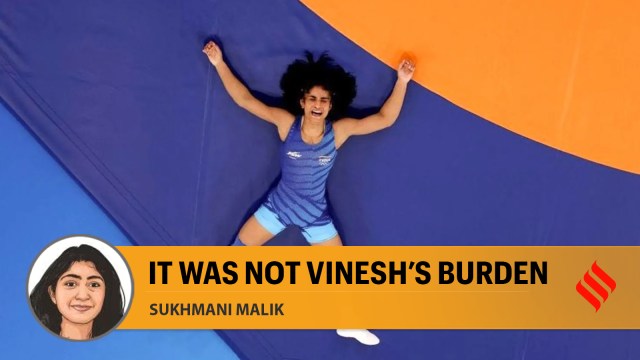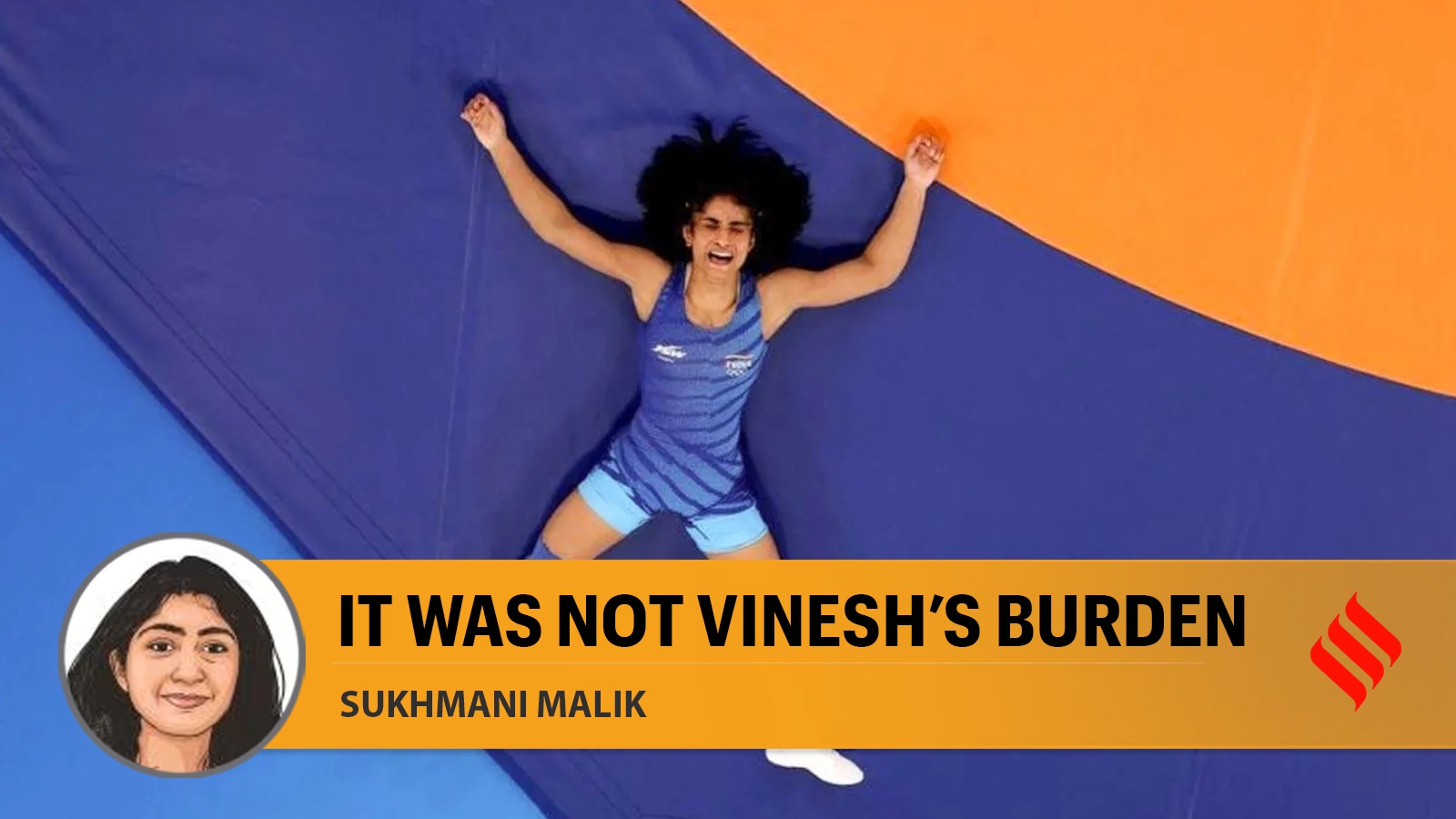
In Rocky (1976), as the climactic match between defending world champion Apollo Creed and past-his-prime underdog Rocky draws to a close, the commentators marvel that the latter is still standing. Rocky’s eye is swollen; he asks his manager to cut it open so he can see, so he can keep fighting. He makes it through all 15 rounds, knocking out Creed for the first and 10th time in the same match, and the commentators announce a split verdict. Rocky’s words from earlier come to life on the screen: “It really don’t matter if I lose this fight… all I wanna do is go the distance.”
After the almost cinematic ups and downs at the Paris Olympic Games 2024, as the fate of Vinesh Phogat’s joint silver medal hangs in the balance at the Court of Arbitration for Sport, the comparison rings uncannily true. Like Rocky, Phogat, too, aspired to go the distance. Except, the image of Phogat in tears on the mat carried a burden much larger than any that Rocky ever did. Coming up as a sportswoman against all odds, and fighting battles for justice with a ferocity rarely seen, Phogat shouldered aspirations far beyond excellence and medal dreams. She carried to Paris dreams of vindication — for herself and millions of others. It was a burden she should not have had to bear.
The script for this was written much earlier over the course of a televised 18-month agitation fought with blood, sweat, and tears and then an uphill battle to the Olympics. On August 6, as Phogat managed one of the greatest upsets in world sports — she knocked out the defending champion Yui Susaki and broke her streak of 95 unbeaten international matches — it seemed like the ribbon with which to neatly wrap the story was within reach, whether silver or golden. Her disqualification from the finals, hours after the historic win, was a twist no one saw coming. It was met with outcry — and a solidarity that went far beyond sports.
Many saw their own stories in Phogat’s trial by fire. Last year, the wrestlers’ protest against then Wrestling Federation of India (WFI) president and former BJP MP Brij Bhushan Sharan Singh on allegations of sexual assault did a few things. It created role models, people who put their full weight and careers behind holding power accountable. It also showed what such a reckoning can look like in India — the unshakeability of these ecosystems and the ugly ways in which they can take agency and power away from women. It was a moment of collective comprehension of the wall one comes up against in one’s fight against the wrong man in the right place.
Phogat’s tale did not begin on the mat. And so, bookending it with a medal can only be a consolation, for her and for countless others like her. That so many women identified with the burden that Phogat carried to Paris this year, that this was her burden to begin with, tells us much about a country that espouses values of both “naari shakti” and being a “sporting nation”. Justice and dignity were supposed to be snatched back with grit and a commitment to brilliance. She had said once, “I will look him (Singh) in the eye and medal leke aoongi main, tu dekh (I will bring a medal, you see).” This is why the dejection at her disqualification speaks of a sorrow that goes beyond Phogat. “Vinesh, you were not the one who lost. It’s the defeat of every daughter of our country for whom you fought,” Bajrang Punia commented on her disqualification. But this fight and this burden of vindication should not have weighed on her mind as she stepped into the ring. That is the real issue.
In one of the interviews Phogat gave while protesting at Jantar Mantar, she said, “Junior women wrestlers come to me and ask how they are supposed to train like this, how I did it. How do I answer them?” Over a year later, that fear now looms larger, having witnessed the impunity of the powerful. But surely, Phogat’s story, her journey to the biggest podium in the world is larger than one of vindication alone?
From Delhi to Paris was a long road. It told a story of potential stymied; of potential that could have blossomed much brighter had it not been fighting against the wind. The recognition and fair opportunities that she has missed can be awarded to her by way of a medal. But the real task is to ensure change. Phogat carried on her shoulders the shared grief of dignity denied and the inability to dream for oneself without being knocked down by systems entrenched in misogyny. This is a battle for our courts and for us. It must be fought by building a culture that empowers justice. It can’t be fought on the mat. Phogat has gone beyond her call of duty. As we await a decision on the medal, maybe we can ponder if there is a better script for this story — one that ensures dignity long before the mat.
sukhmani.malik@expressindia.com



